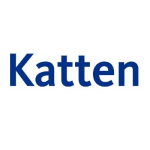Individuals and businesses all over the world rely on the accuracy and integrity of the US Patent and Trademark Office’s (PTO) federal trademark register to inform them on key decisions regarding branding and marketing. The Trademark Modernization Act of 2020 (TMA), part of the COVID-19 relief legislative package signed into law on December 27 2020, acknowledges this by, among other things, establishing new procedures and creating powerful tools to fortify the reliability of the register, while addressing the long-standing issues caused by trademark filings based on false assertions of use in the US.
Challenging unused trademarks
The TMA, which will go into effect on December 27 2021, provides two new mechanisms to challenge existing trademark registrations on the ground of non-use and are intended to reduce the effort required for interested parties to remove abandoned marks from the register.
First, a third party can file an ex parte petition for an expungement of a registration within three to 10 years of its issuance on the ground that the trademark was never used in US commerce. Second, a third party can file an ex parte petition for reexamination of a registration within the first five years of its issuance on the ground that the trademark was not used in US commerce prior to its registration date.
In a petition for either expungement or reexamination, the challenger must assert that a reasonable investigation was undertaken and that the evidence submitted shows that the mark had not been used in connection with the covered goods or services as is required under US law. These proceedings do not require a showing of standing and may also be initiated by the PTO directly if the director of the PTO (director) discovers information that supports a prima facie case that a mark has never been used in US commerce or has not been used in US commerce as of a particular relevant date with certain goods or services covered by a registration.
Letter of protest
In addition to adding new options for post-registration challenges, the TMA provides statutory authority to codify the process for third parties to submit a letter of protest against registration of a mark while the application is still in its PTO examination phase. Parties can submit evidence that supports any ground of potential refusal of an application, including, for example, a claim that the protested application is: likely to be confused with a trademark in a US registration or prior pending application, merely descriptive of or generic for the identified goods or services, or suggests a false connection with the protestor. The director will then have two months from the filing of the evidence to decide whether to include the evidence in the examination record of the application.
Any determination by the director whether or not to include such evidence in the record of an application will be final and non-reviewable, but will not prejudice any party’s right to raise any issue and rely on any evidence again in any subsequent opposition or cancellation proceeding.
Improving flexibility
Furthermore, the TMA provides the opportunity to quicken the typical prosecution timeline by offering PTO examining attorneys flexibility in setting response deadlines to rejections of pending applications. Under the TMA, PTO examining attorneys can, for the first time, shorten the previously rigid six-month office action response window to as few as two months. Applicants, however, will have the ability to request extensions up to six months in total.
Finally, the TMA resolves a split among the judicial circuits to clarify that irreparable harm can, in fact, be presumed in requests for injunctive relief upon a finding of trademark infringement or a showing of likelihood of success on the merits for preliminary injunctions. By clarifying a trademark owner’s burden in litigation and creating this uniform rule, the TMA will assist trademark owners seeking to enforce their rights against infringers in Federal Court.
Karen Artz Ash
Partner, Katten Muchin Rosenman
Alexandra Caleca
Associate, Katten Muchin Rosenman













